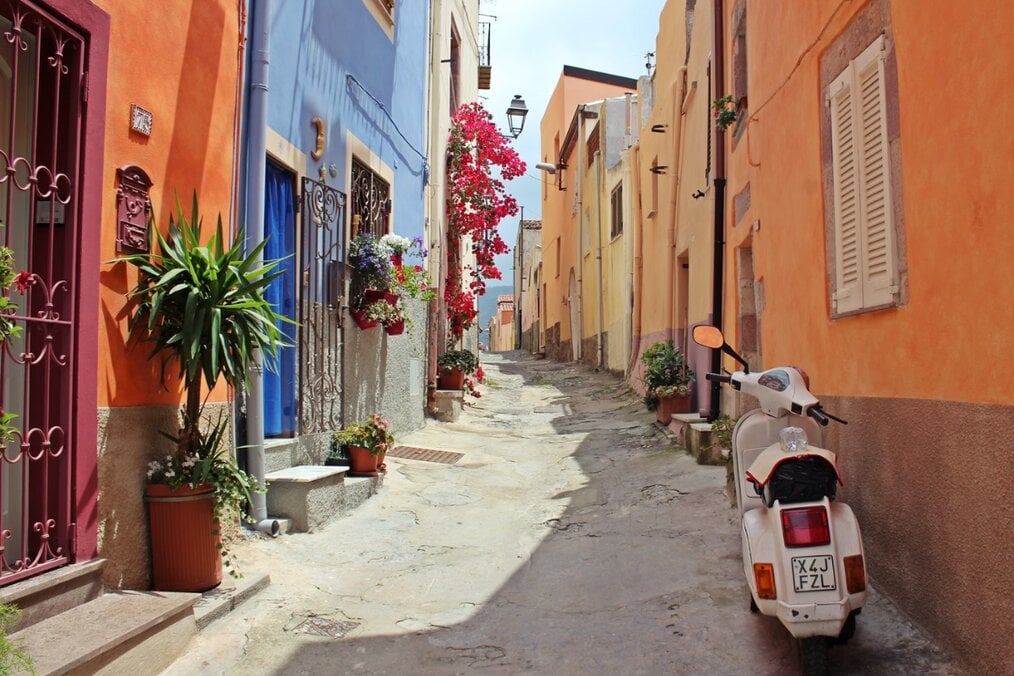
Where to Study Abroad as an English Literature Major
As a literature major, studying abroad is an exciting way to learn in the environment where legendary writers once wrote. Here are the 5 best countries to study English literature abroad!
As an English literature major, studying abroad is an exciting way to live and learn in the environment where legendary writers once wrote, better understand the cultural context behind iconic pieces of work, and explore other historical bodies of work to deepen your literary knowledge.
Literature is a unique subject because authors and their texts are embedded in their environment and culture. The more you learn and unravel about the country and city in which you're situated, the more likely you're to understand the author and interpret their literary choices.
The argument that “you can’t separate the art from the artist” is a testament to the profound influence that a country’s unique culture and history has on any piece of literature.
Ready to start studying abroad? Let’s dive into some of the best countries to study English literature abroad!
1. England

📚 Best for: Classic, Poetry, Drama, Satire, History, Theatre, Medieval, Detective Fiction
📍 Popular cities: London, Manchester, Liverpool, Oxford, Cambridge
📚 Top universities: University of Oxford, University of Cambridge, University College London, University of Manchester, University of Liverpool, University of Brighton, University of Sussex
For literature enthusiasts, England is a clear contender for study abroad. The boundless English literary canon full of genre defining texts, legendary authors, and literary defining cultural movements. With centuries of English texts to study, there are no shortage of options when it comes to studying English literature in England.
Whether literature students want to study Shakespearean tragedies, Renaissance poetry, feminist theory and criticism, or something else, studying literature in England offers a wide range of modules to specialize in. Students will gain insight into cultural movements, philosophies, and the minds of prominent authors which not only influenced literature but history in England.
Outside of studying, international students can visit locations of interest such as Canterbury - the inspiration behind Chaucer’s tales, Stratford Upon Avon,the birthplace of Shakespeare, or London, the cultural and economic capital which is home to writers such as Virgina Woolf, Lord Byron, Mary Shelley, and more.
Read more: 10 Best Universities in the UK for International Students
2. Ireland

📚 Best for: Irish & Gaelic literature, Poetry, Modernism, Realist fiction, Folklore
📍 Popular cities: Dublin, Limerick, Galway
📚 Top universities: Trinity College Dublin, University College Dublin, University of Limerick, Dublin City University, University College Cork, University of Galway, Maynooth University
Ireland is another popular destination for international students studying English literature. With luscious green landscapes, compact cities, prestigious universities, and a rich literary heritage, students will have a fantastic time studying in Ireland.
Many are surprised to hear that some of the most notable classics in the canon of English literature were written by Irish authors. Ulysses, described as a masterpiece and one of the world’s most influential texts, was written by James Joyce, a native of Dublin. Bram Stoker wrote Dracula, and poems such as The Second Coming and A Prayer For My Daughter are by W.B. Yeats, who are, again, Irish authors.
Whether you want to study folklore, modernism, Irish poetry, or postcolonial texts, Ireland offers some of the most enriching literature study experiences for international students.
Read more: Top 7 Universities in Ireland for International Students
3. France

📚 Best for: Classic, History, Theatre, Renaissance
📍 Popular cities: Paris, Lyon, Marseille, Nice, Toulouse, Rennes
📚 Top universities: Université Paris Cité, Paris Diderot University, Sorbonne University, Aix-Marseille University, The American University of Paris
France is often associated with intellect and sophistication, and boasts of having one of the best education systems in the world. Students can benefit from studying English literature at a range of reputable French universities in cities such as Paris, Lyon, Marseille, Toulouse, and many more.
Les Miserables, The Stranger, and The Three Musketeers are just a few examples of popular pieces of literature written in French before being translated into English. The avant garde genre, originating in France and literally meaning “advance guard” or “vanguard”, focuses on reforming and experimenting with literary genres of literature, and the term became popularized among English and American authors and critics.
4. Italy

📚 Best for: Classical Roman, Poetry, Renaissance, Theatre, Tragedy, Comedy
📍 Popular cities: Rome, Milan, Florence, Naples, Bologna, Torino
📚 Top universities: University of Milan, University of Bologna, University of Padua, Sapienza University of Rome, Scuola Normale Superiore di Pisa, Humanitas University, University of Padova, John Cabot University, Lorenzo de' Medici
Italy is known for its romantic architecture, unrivaled culinary culture, and intellectual literary scene. With notable pieces of literature such as Dante’s Inferno, Machiavelli’s The Prince, and Collodi’s Pinocchio, and Petrarch who inspired many of Shakespeare’s sonnets, there is no shortage of options for those who want to study English literature in Italy.
International students in Italy can study literature at prestigious universities in enchanting cities such as Florence, Milan, Rome, and many more. Outside of class, international students can visit medieval villages, gaze upon Romanesque and Gothic architecture, or hike among mainland Europe’s only active volcanoes.
Read more: The 10 Best Study Abroad Programs in Italy
5. Spain

📚 Best for: Poetry, Drama, History
📍 Popular cities: Barcelona, Madrid, Seville, Valencia, Granada
📚 Top universities: University of Barcelona, University of Madrid, Autonomous University of Barcelona, University of Navarra, Complutense University of Madrid, University of Granada, University of Valencia
Spain has a rich literary tradition dating back centuries! The country is home to many literary texts related to Baroque and heroic poetry, and can be categorized into a range of provincial genres such as Castilian, Catalan, and Galician literature.
There are many opportunities for international students to study in English at a reputable Spanish university. Many Spanish universities, particularly in Madrid and Barcelona, offer courses taught either entirely or partly in English, allowing students to focus entirely on their native language or developing other languages (such as Spanish) simultaneously.
Read more: Top 10 Universities in Spain for International Students
Top literature study abroad programs
Studying abroad with a program provider can enrich your academic experience by introducing you to new friends and opportunities for immersion beyond just the classroom, in the forms of workshops, excursions, and group travel! There are a wide range of programs where you can study literature abroad in various countries right here on Go Overseas.
Start by exploring these top literature programs:
- University of Sussex: Study Abroad on the south coast of England
- IES Abroad: Study Abroad in Milan, Italy
- John Cabot University: Study Abroad in Rome, Italy
- CEA Capa: Study Abroad in Paris, France
- CYA: Study abroad in Greece
How to study English literature abroad
Now you know that you want to study English literature abroad, it’s important to know how you can take the right steps to make your dream a reality!
Here’s how you can study English literature abroad:
- Choose your niche: When studying English literature, people tend to have a preference with genres, styles, authors, and more. It’s important to understand whether you have specific types of modules in mind when it comes to studying abroad.
- Research locations and universities: With such a diverse range of cities and cultures abroad, it can be hard to decide where to study. Not only should you decide what kind of university you’d like to study in, it’s important to decide what kind of location would optimize your student lifestyle.
- Choose a third-party provider or apply independently: You can apply for study abroad courses independently through direct enrollment. While it is the cheaper option, it will require more time and effort on your part. Or, you can go with a third-party provider which will organize most aspects of your study abroad experience for you, but is the more costly option.
- Prepare your application: It’s important that you are thorough and organized when it comes to your study abroad application. Be sure to prepare a personal statement, references, and academic transcripts in advance to give yourself plenty of time.
- Apply for a visa: Congratulations! Once you’ve been accepted, you may need to apply for a student visa depending on your nationality. You can ask your program or contact the
Study English literature abroad today!
Studying English literature abroad is a fantastic opportunity to simultaneously learn about a country’s history, and the author’s experience which may voice the culture. Different countries will have different approaches to learning, which can maximize your academic development, while allowing you to gain greater appreciation for the country’s literary works and history!
Start your study abroad adventure today:






